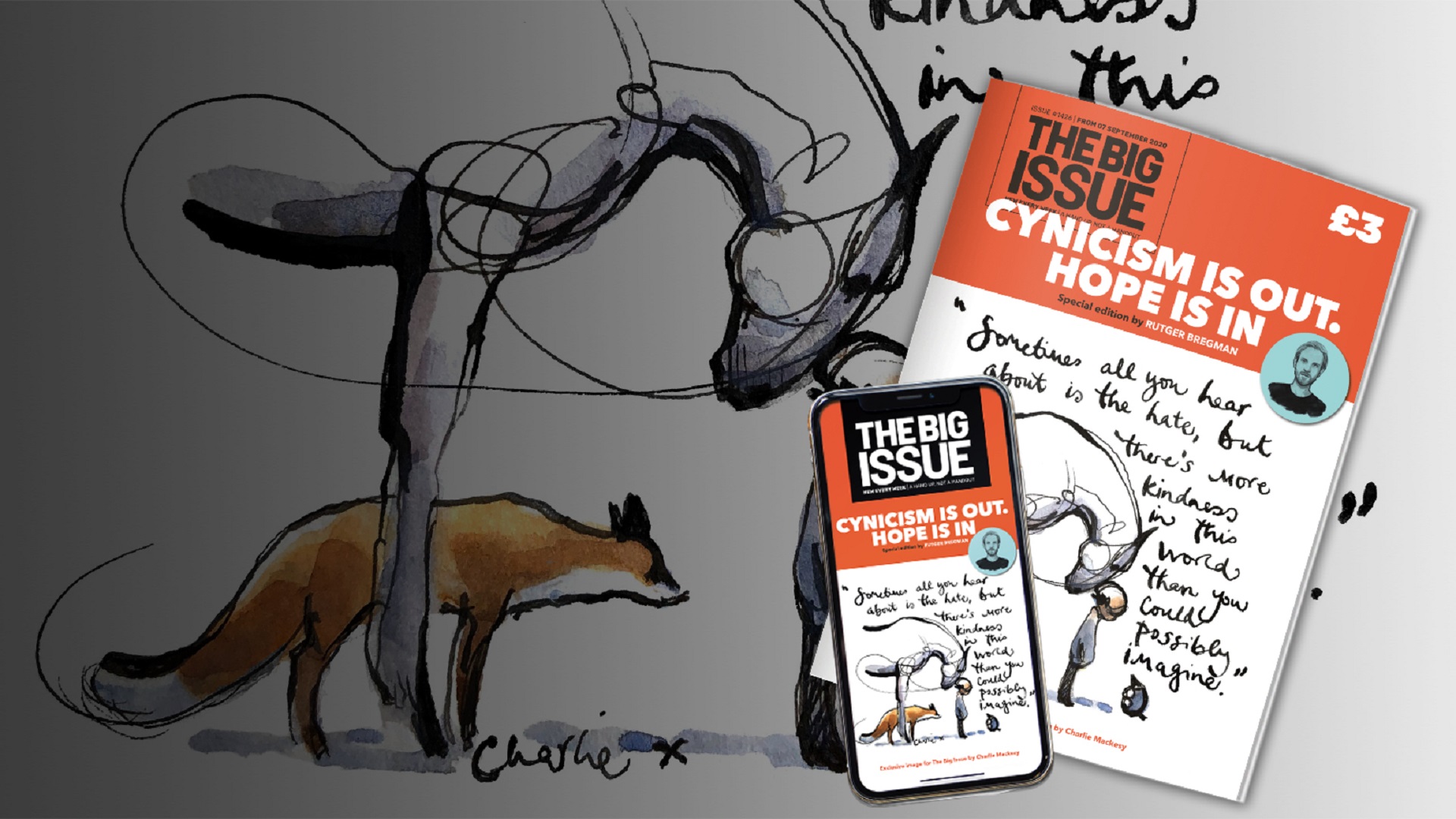If you had told anyone, just 10 years ago, that by now a 16-year-old Swedish girl would have kickstarted the biggest climate justice movement the world has ever seen, that the death of a 46-year-old black man at the hands of a white police officer would ignite the largest protests in the history of the United States, that even the Financial Times – the world’s leading business paper – would write in an editorial that “radical reforms (…) will need to be put on the table”, that, of all people, Joe Biden would become the US presidential candidate with the most progressive platform ever, that the vast majority of people in developed countries would be in favour of things like higher taxes on the rich, equal marriage and a Green New Deal, that we would go through a global pandemic that would make us question everything about how we’ve organised our societies and economies – well, I think most people would have thought you’d lost your mind.
And yet that’s what has happened. Ideas that used to be dismissed as unrealistic, unreasonable and impossible have moved into the mainstream. In my interview with filmmaker Richard Curtis for this week’s magazine, Curtis told me about a conversation he had, 15 years ago, with Gordon Brown. It was about tax evasion and inequality, and the then-Chancellor said: “It won’t come up during our lifetime.” He couldn’t be more wrong. Tax evasion and inequality have become major political issues. A 2019 survey of 22,000 people in 21 countries found that the vast majority of people want higher taxes on the rich in order to support the poor.
Six years ago I published a book called Utopia for Realists about ideas that may seem crazy now, but might just change the world. One of the main ideas was Universal Basic Income (UBI): giving everyone a monthly grant that’s enough to pay for basic needs. In 2014, UBI was an almost forgotten idea, and seen as wildly unrealistic by pundits and politicians. It’s been amazing to see how quickly it’s become so much more popular. A 2020 poll by researchers from Oxford University found that more than 70 per cent of Europeans now support the idea.
Behind the notion of a basic income for everyone (call it ‘venture capital for the people’) lies a totally new view of human nature. For centuries Western culture has been permeated by the idea that we humans are just selfish creatures. That cynical image of man has been proclaimed in many places – in films and novels, in history books and in scientific research. But in the last 20 years scientists from all over the world and from many disciplines have switched to a more hopeful view of mankind. This development is still so young that researchers often don’t even know about each other. Or as a prominent psychologist cried out when I told her about new trends in biology: “Oh god, so it’s happening there as well?”
For my new book Humankind I wanted to tell the story of this revolution, one that has come at exactly the right time. Just look at the jaw-dropping generational shift of the past three decades. If you were young in the 1990s, it was avant-garde to be cynical and nihilistic. Irony was cool, values were passé. If you’re young now, it’s avant-garde to protest and occupy, to engage and stay true to your values. Activism is the new realism.
In Western Europe, young people are much more progressive than the generations of their parents and grandparents. They’re more supportive of LGBT+ rights, more positive about the contribution of immigrants to society and more supportive of the European Union. (In the UK, pollsters YouGov have found that more than 300,000 Leave voters die each year, while Remain is getting almost 400,000 new supporters of voting age. With the same voting patterns as in 2016, ‘the will of the people’ would now be to stay in the EU.)










